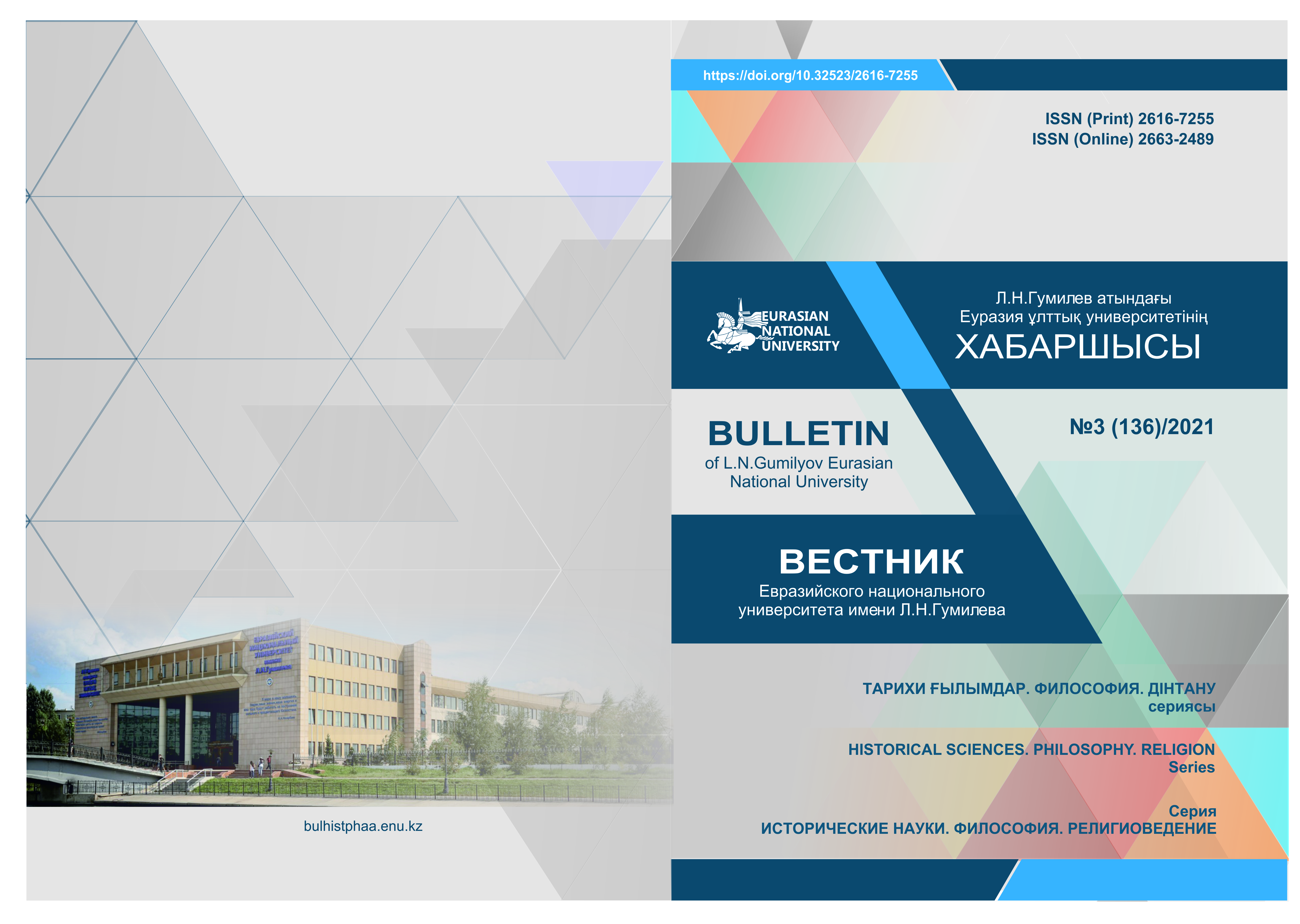Otman Baba as the Organic Intellectual of the Turkmen-Yoruks
Views: 147 / PDF downloads: 166
DOI:
https://doi.org/10.32523/2616-7255-2021-136-3-160-175Keywords:
Organic intellectual; Akhi; Sedimentary intellectuals; Sheikhs; Ulemas; Turkmen-Yoruks; Abdalan-y-Rumi; Futyubet ethics.Abstract
The article examines a social structure of the Ottoman Empire based on the classification and comparative analysis of groups of intellectuals in accordance with the concept of an organic intellectual. On the basis of the analysis of the image of Otman Baba, the intellectual feature of the nomadic Turks is revealed. It necessary to note that three different intellectual groups are representing three different layers. The first of these are the intellectuals of the ruling bloc. These intellectuals go through historical transformations and continue as ulema (theologians). These intellectuals, the sheikhs, are the bearers of the Sunni Islamic ideology. The second type of intellectuals consists largely of the apostles (Ahis) that represent the craftsmen in the cities and the workers in these branches of crafts. The Ahis have an ideology that cannot be explained, with Islam only and Sunni Islam in particular. The third type of intellectuals is the abdals that are the intellectuals of the Turkmen-Yörük, who are the main oppressed class of the society. These three types of intellectuals can be explained with the concept of organic intellectuals. Otman Baba is the best example to describe the organic intellectual of Turkmen-Yoruks. Sheikh Bedreddin was unfortunately attributed to his place. Another phenomenon is the continued existence of the Ottoman sovereign to continue to block the period of the Republic of Turkey intellectuals. I define these intellectuals with the concept of “sedimentary intellectuals”.
Downloads

Downloads
Published
How to Cite
Issue
Section
License
Copyright (c) 2021 U. Sinan

This work is licensed under a Creative Commons Attribution-NonCommercial 4.0 International License.







